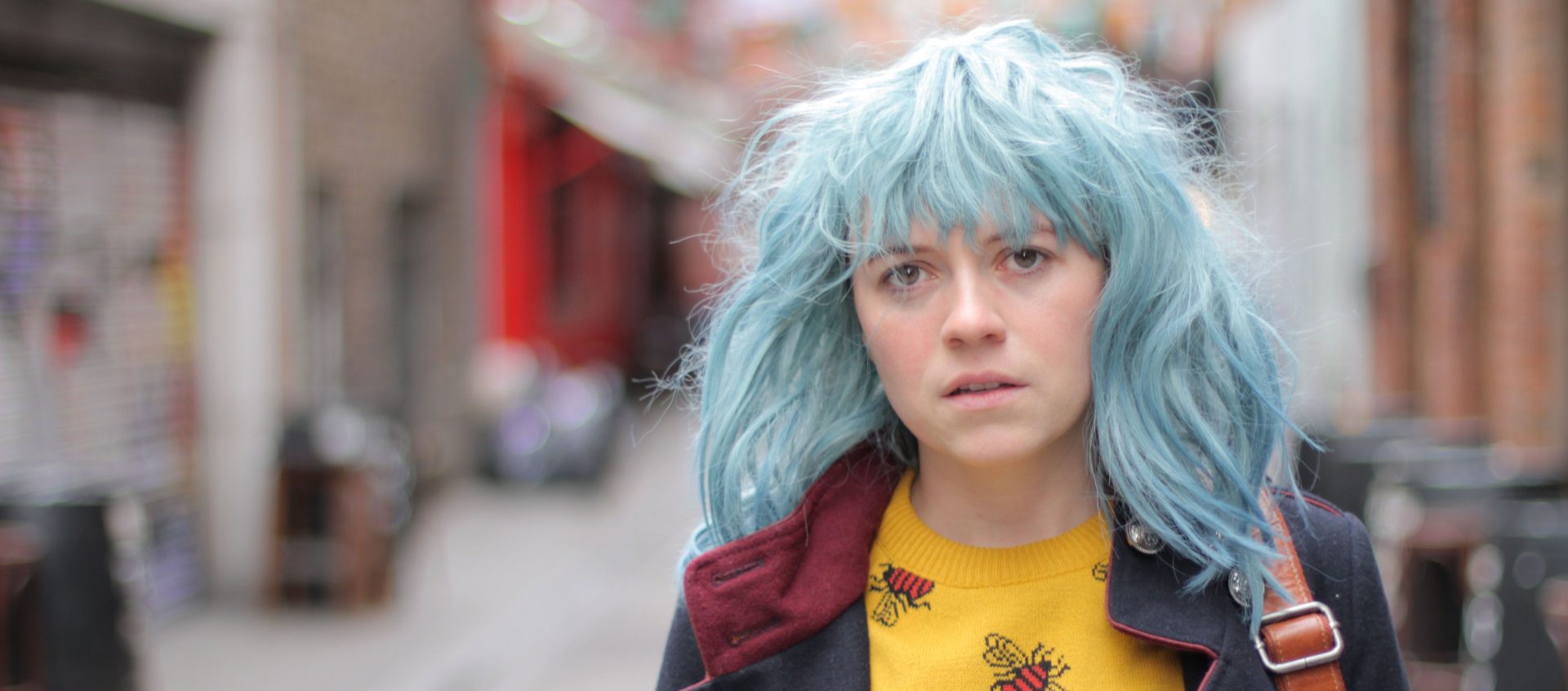A cynical stand-up comedian, Kate McLoughlin (Gemma-Leah Devereux) routinely mines the darker aspects of her own experience – a callous father, a distant mother, a string of romantic failures, dalliances with recreational drugs, even suicidal thoughts – for material to provoke guffaws from her seemingly adoring public. Although she’s never made it to the big time, she’s carved out a respectable niche of renown in her backwater Irish hometown, though her sense unfulfillment is palpable from the outset.
Once diagnosed with breast cancer, however, Kate’s sardonic nature gives way to a full-blown fixation on the gaping abyss facing her. Her hard-nosed façade and near-addiction to fleeting sexual encounters mask a profound sense of loneliness and a need to be loved. Alienated from her mother, her only legitimate outlets for her repressed emotion are her brother, his daughter and, later (and less convincingly), her pharmacist.
It’s due to her fondness for the former two that Kate reluctantly enrols in a course of chemotherapy to try and beat the disease. By doing so, she’ll be thrust together with four other women whose only thing in common is the tumours killing their bodies from the inside out. Typical for movies of this ilk, their relationships start out shaky, but eventually coalesce into a symbiotic support system without which none would cope.
The narrative itself is inspired by the memoir of Irish comedian Anne Gildea’s memoir I’ve Got Cancer, What’s Your Excuse?, supplemented with anecdotal additions from director Ruth Meehan whose own sister succumbed to the disease. Devereux is excellent as the perennial sceptic who soon finds herself out of her own pessimistic depth, while her supporting cast of fellow patients, brother and love interest all play their roles with believable emotion and depth.
The writing which underpins those relationships, on the other hand, is a little less accomplished at times; friendships can feel slightly unearned, while Kate’s flirtation with her pharmacist doesn’t ring true at all. Indeed, that’s The Bright Side’s major failing in a nutshell. The story doesn’t really deliver anything new that hasn’t been done in other films dealing with similar subject matter, but that’s not necessarily a problem. The well-trodden path it follows is engaging enough, but it misses chances to set itself apart on more than one occasion.
The remote setting could foster a quirkiness to the humour without sacrificing pathos in the major scenes, for example, but it’s all largely quite vanilla within the darkness of its comedy. The emotional scenes are all executed competently, too, but the build-up which precedes them takes some of the sheen off their impact. Nonetheless, it’s an eminently watchable feature debut from Meehan that explores the chaos and despair which must ensue from such a malignant affliction. It just falls short of really hitting its audience in either the feels or the funny bones, making it feel like a missed opportunity in many of the most important respects.
Screening as part of Edinburgh International Film Festival 2021
